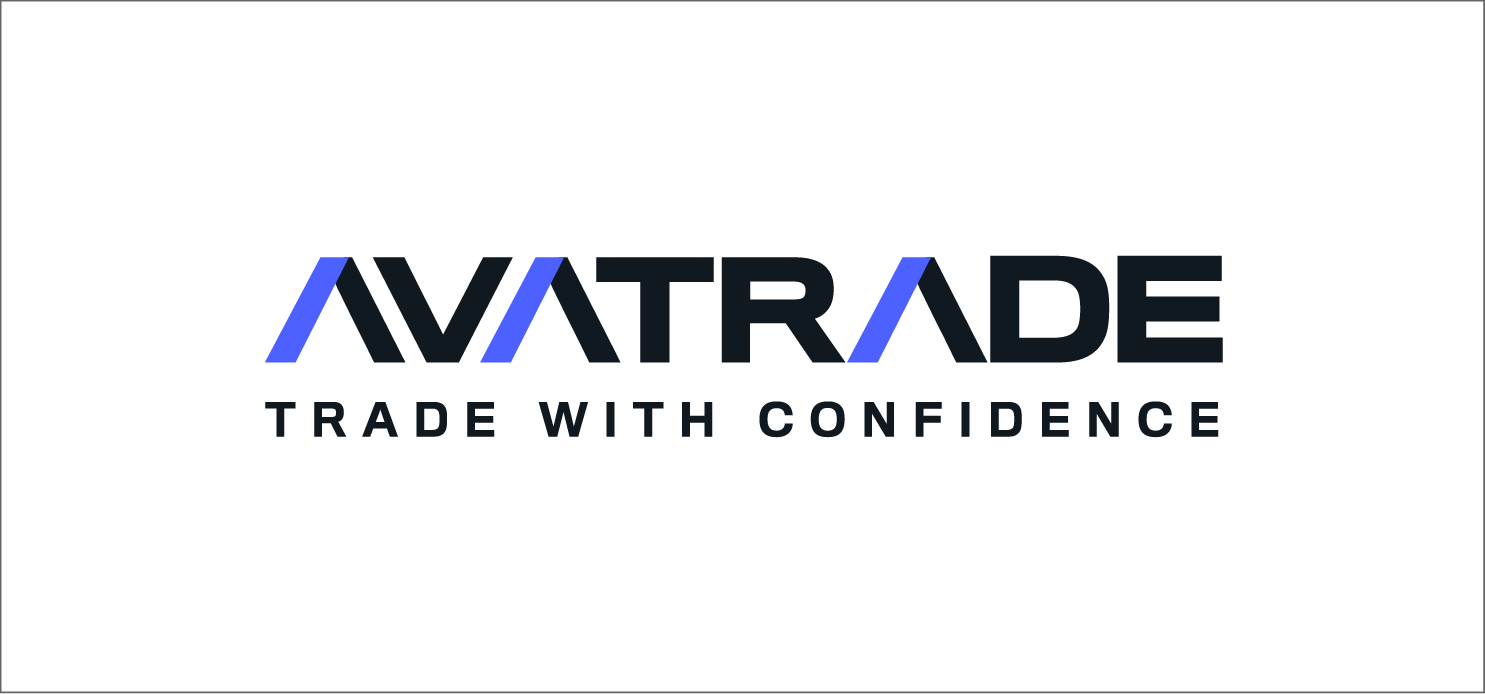Best 10 Stock Brokers in Canada (2025 Review)
All products and services featured are independently selected by WikiJob. When you register or purchase through links on this page, we may earn a commission.
- A list of the Top Stock Brokers in Canada for January 2025:
- Comparison Chart of the Best Stock Brokers in Canada for January 2025
- Description of the Best Stock Brokers in Canada for January 2025
- What Is a Stock Broker?
- What Are the Different Types of Stock Brokers?
empty
empty
empty
- How Do Stock Brokers Make Money?
- How Are Stock Brokers in Canada Regulated?
- How to Choose a Stock Broker in Canada in 2025
- Frequently Asked Questions
- Final Thoughts
A list of the Top Stock Brokers in Canada for January 2025:
- AvaTrade
- IG
- Questrade
- Qtrade
- Wealthsimple
- Interactive Brokers
- RBC Direct Investing
- CIBC Investor’s Edge
- Scotia iTRADE
- CI Direct Trading
Comparison Chart of the Best Stock Brokers in Canada for January 2025
Trading Fees Variable | Account Types Forex, CFDs | Trading Platforms AvaTradeGO | |||
Trading Fees Variable | Account Types Stocks, Forex, CFDs | Trading Platforms IG Trading Platform | |||
Trading Fees Variable | Account Types Stocks, ETFs, Mutual Funds | Trading Platforms Questrade Trading Platform | |||
Broker Qtrade | Trading Fees Variable | Account Types Stocks, ETFs, Mutual Funds | Trading Platforms Qtrade Investor | ||
Trading Fees Management fee | Account Types Robo-Advisor | Trading Platforms N/A | |||
Broker Interactive Brokers | Trading Fees Variable | Account Types Global | Trading Platforms Trader Workstation, IBKR Mobile | ||
Trading Fees Variable | Account Types Stocks, ETFs, Mutual Funds | Trading Platforms RBC Online Investing | |||
Trading Fees Variable | Account Types Stocks, ETFs, Mutual Funds | Trading Platforms CIBC Investor's Edge | |||
Trading Fees Variable | Account Types Stocks, ETFs, Mutual Funds | Trading Platforms Scotia iTRADE | |||
Broker CI Direct Trading | Trading Fees Variable | Account Types Stocks, ETFs, Mutual Funds | Trading Platforms CI Direct Investing |
CFDs are complex instruments and come with a high risk of losing money rapidly due to leverage. 76% of retail investor accounts lose money when trading CFDs with this provider. You should consider whether you understand how CFDs work and whether you can afford to take the high risk of losing your money.
Description of the Best Stock Brokers in Canada for January 2025
1. AvaTrade
Pros
- Worldwide regulated
- Multiple platforms – MT4, MT5, etc.
- Negative balance protection
- 20% welcome bonus
- Educational content
- Wide rage of payments methods
- Fixed spreads
Cons
- You can’t buy stocks
- Quarterly and annual inactivity fees
- Custumer support is not available 24/7
- No bonus for EU based clients
- No US clients accepted
- Imitated crypto assets
AvaTrade is a CFD Regulated broker with +1,000 financial instruments and multiple trading platforms. It has been operating since 2006.
It offers a 20% welcome bonus up to $10,000, according to regulation and a free 21-day demo account with $100,000.
Instruments include:
- Metals
- Commodities
- Stocks
- FX Options
- Oil
- ETFs
- Options
- Crypto currencies
- CFDs
- Indexes
- Shares
- Spread betting
- Indices
- Forex
- Bonds
AVATrade EU Ltd is regulated by the Central Bank of Ireland. (No.C53877) Ava Trade Markets Ltd. is regulated by the B.V.I Financial Services Commission. It is also highly regulated in Australia, South Africa, Japan, Middle East, Cyprus and Israel
You can not trade with AvaTrade in the US, North Korea, New Zealand, Iran or Belgium.
Mínimum deposit of $100, no withdraw limit and no fees.
2. IG
IG is a great share trading platform for beginners thanks to its user-friendly interface and extensive educational resources.
Pros of IG include a wide range of trading instruments and markets, as well as the ability to access multiple account types and trading platforms. The platform also offers a demo account for beginners to practise trading strategies before investing real money.
However, IG isn’t the cheapest share trading platform, with relatively high trading fees and a minimum deposit requirement of £250 when paying by credit/debit card or PayPal.
In terms of additional fees, IG charges a commission fee for share trading, starting from £8 per trade. There’s also a custody fee of 0.25% per year for holdings of £250 or more.
Overall, IG is a solid choice for beginners looking for a user-friendly platform with extensive educational resources, but investors should be aware of its fees and minimum deposit requirements.
3. Questrade
Pros
- No inactivity fee
- User-friendly interface
- Useful research tools
- Active trader discounts
- Mobile and desktop platforms
- No commission when buying ETFs
Cons
- High minimum trading balance
- No customer support on weekends
- No cryptocurrencies
Best for: Customer service, educational and research tools
Commission: Considered low but variable according to asset traded
Minimum deposit: $1,000
Withdrawal fees: $0 (if in Canada)
Tradable assets: Stocks, bonds, ETFs, mutual funds, CFDs, FX, IPOs
Established in 1999, Questrade is a regulated online brokerage platform. It is considered one of the most popular trading platforms in Canada largely due to being regulated in a tier 1 country.
The online brokerage enables investors to practice trades through the use of a demo account.
Questrade offers three trading platforms. These are accessible via the web, mobile app and desktop.
4. Qtrade
Pros
- Available on mobile and desktop
- Demo account available
- No minimum balance
- User-friendly interface
Cons
- Inactivity fee
- Average commission fees
- No credit or debit cards for deposits and withdrawals
- Customer support is not 24/7
Best for: Low fees, educational resources
Commission: Considered low and varies depending on asset traded
Minimum deposit: $0
Withdrawal fees: $0
Tradable assets: Options, ETFs, bonds, stocks, funds
Founded in 2000, Qtrade is a fully regulated Canadian stock broker with both web and app versions of the online trading platform.
Qtrade offers no minimum deposit and low fees. The platform only offers trading in Canadian and US markets. There are also limitations on how funds can be deposited.
5. Wealthsimple
Pros
- No inactivity fee
- Low minimum trading balance
- Commission-free stock trades
- Simple, user-friendly interface suits less experienced investors
- Fractional shares available
- Price alerts
- Socially responsible investing
Cons
- Customer support is not 24/7
- Limited educational resources and trading tools
- Account management fees
Best for: User-friendly platform, low fees
Commission: $0; however, currency exchange commission is charged
Minimum deposit: $100
Withdrawal fees: $0
Tradable assets: Canadian and US listed ETFs, stocks (note not all assets are available to trade on the Wealthsimple platform)
Wealthsimple is a fully regulated online platform. It offers automated trading for those who want to manage their investment portfolio.
Founded in 2014, Wealthsimple is a platform that enables investors to buy and sell stocks and ETFs for no fees.
It is worth noting that the platform only allows trading in Canadian and US markets.
6. Interactive Brokers
Pros
- Regulated
- Wide range of offerings
- Low commission
- Socially responsible
- 24/5 customer support across multiple channels
Cons
- No additional platforms
- Inactivity fees
Best for: More experienced or active investors, large number of assets that can be traded
Commission: Tiered and fixed according to the asset traded
Minimum deposit: Depends on the platform used. Varies from $0 to being assessed by an individual’s net worth and income
Withdrawal fees: One free withdrawal, 12 CAD after that
Tradable assets: Spot currencies, ETFs, bonds, stocks, options, mutual funds, futures
Founded in 2000, Interactive Brokers is a member of the Investment Industry Regulatory Organization of Canada.
The online broker has two different platforms, IBKR Lite and IBKR Pro, for the more experienced investor.
Interactive Brokers allows investors to trade in a variety of assets in over 130 markets.
7. RBC Direct Investing
Pros
- No minimum deposit
- No inactivity fee
- No withdrawal fees for RBC banking clients for most accounts
- Demo account available
Cons
- Customer support not 24/7
- No debit/credit card deposits and withdrawals
- Quarterly account maintenance fee under certain conditions
- High withdrawal fees for RRSP and non-RBC banking clients
Best for: All levels of investor
Commission: Varies according to the asset traded
Minimum deposit: $0
Withdrawal fees: Varies according to the type of account
Tradable assets: ETFs, stocks, mutual funds, bonds, options, debentures, guaranteed investments, treasury bills
RBC Direct Investing Inc is an online brokerage platform in Canada. Founded in 1864, it is the broker arm of the Royal Bank of Canada.
The platform offers trading in several different assets and enables investors to discuss investments via an online community.
Research tools and educational webinars are also available.
8. CIBC Investor’s Edge
Pros
- Good educational and research resources
- Available on desktop and mobile
- Good range of accounts and investment products
- Price alerts
Cons
- Annual maintenance fee for certain account balances
- Average trading fees
- Access to customer support can be difficult
Best for: Educational and research tools available, all levels of investors
Commission: Varies according to asset traded
Minimum deposit: $0
Withdrawal fees: Varies according to the account type
Tradable assets: Mutual funds, bonds, CICs, precious metals certificates, ETFs, stocks, options
CIBC Investor’s Edge is an online trading platform that is part of CIBC Investor Services Inc, a Canadian Imperial Bank of Commerce division.
The online platform offers many assets to trade in, with lower fees than some of the other brokerage platforms offered by Canadian banks.
CIBC Investor’s Edge has a range of educational resources, research, charting and watch list tools.
9. Scotia iTRADE
Pros
- No minimum deposit
- Demo account
- Useful educational and research resources
- Wide range of accounts
- Option to hold US and Canadian dollars to avoid currency conversion fees
Cons
- High withdrawal fees
- Annual account maintenance fee
- Difficult to access customer support
- High trading commissions
Best for: New or less experienced investors
Commission: Varies according to asset type traded
Minimum deposit: $0
Withdrawal fees: Varies from $25 to $150 per transfer depending on account type
Tradable assets: Guaranteed investment certificates, mutual funds, precious metals certificates, bonds, stocks, ETFs, new issues, initial public offerings
Scotia iTRADE is a Canadian online broker platform.
Part of Scotiabank and fully regulated by the Investment Industry Regulatory Organization of Canada, the platform offers many educational tools to investors.
A feature of Scotia iTRADE is its US dollar side account. This means investors can trade in both US and Canadian dollars and hold funds in both versions without paying currency conversion fees.
The platform also offers a demo account for the less experienced investor to practice trades.
10. CI Direct Trading
Pros
- Commission-free ETFs
- Demo account
- Good educational resources and research tools
- Range of trading platforms available
- Socially responsible investing available
Cons
- High minimum deposit
- Customer support is not 24/7
- Inactivity fee
- Account management fees
Best for: Variety of platforms available to trade on
Commission: Varies according to asset type traded
Minimum deposit: $1,000
Withdrawal fees: ETFs free, fees charged on partial or wire transfers
Tradable assets: ETFs, exchange traded debentures, mutual funds, options, equities, fixed income securities
CI Direct Trading is an online discount broker in Canada. As part of CI Financial and formed in 2009, it is a member of the Canadian Investor Protection Fund as well as the Investment Industry Regulatory Organization of Canada (IIROC).
There are many trading platforms that you can use when setting up an online broker account with CI Direct Trading.
These platforms also come with various research and educational tools.
Some platforms also have a customizable view for the more experienced investor.

What Is a Stock Broker?
A stock broker is a professional who works on behalf of individuals or organizations to trade assets such as stocks and shares.
Depending on the type of stock broker, they act as an intermediary between an individual or organization and the stock market and buy and sell stocks.
What Are the Different Types of Stock Brokers?
Full-Service Stock Broker
Also known as advisory stock brokers, this type of stock broker will offer a complete buy and sell trading service besides providing clients with investment advice.
Some full-service stock brokers also offer discretionary services to clients such as management of a client's investments.
Discount Brokers
Also known as execution-only stock brokers, discount brokers only execute trades on your behalf. They do not offer investment advice.
Online Brokers
Lots of discount brokers also offer individuals direct access to the stock market via an online broker system.
Using an online broker system means an individual can directly manage their own investment portfolios.
How Do Stock Brokers Make Money?
Stock brokers can make money in different ways.
Some take a commission based on the volume of trades they execute.
Some stock brokers will charge a management fee for buying and selling stocks and shares in addition to looking after an investment portfolio.
Some make their money through interest income. This is the interest made from low-risk investing of cash that is held in your brokerage account.
It is worth noting that fees and commissions vary by stock broker and the type of service they offer (full service, discount or online).
How Are Stock Brokers in Canada Regulated?
Stock brokers in Canada are regulated by the Investment Industry Regulatory Organization of Canada (IIROC).
IIROC is a self-regulatory organization that operates under Canada’s territories and provincial securities commissions.
In addition to regulating Canada’s securities trading, IIROC’s goal is to ensure that all Canadian trading is controlled and carried out fairly.
It has the authority to impose fines or take disciplinary action against any stock brokers that do not abide by this.
Depending on the type of asset being traded, stock brokers in Canada also have to follow various day trading rules.
These rules cover day trading tax rules, settlement rules and day trading margin rules.
How to Choose a Stock Broker in Canada in 2025
When choosing a stock broker, you should always do your research. Think about your requirements and goals for investing. Consider how much you want to learn about the investment process.
Here are some of the considerations you need to take into account when choosing a stock broker in Canada:
Step 1. Decide What Level of Support You Require
Consider whether you want to execute your trades or have a stock broker do this for you.
Think about whether you need or want your stock broker to give you advice on your investment decisions.
Step 2. Know What You Need
Decide what you want to trade in and how you want to trade.
There is no point picking a top stock broker in Canada if that particular broker does not offer the assets you want to trade in.
Step 3. Think About Your Goals as an Investor
Think about what your long-term goals are when it comes to investing.
Consider how much you want to learn about investing and how you wish to trade (through an app or via a web-based platform).
Step 4. How Flexible Is the Service Provided?
If you want to trade in different currencies, look at the commission rates charged.
Look at the flexibility provided by the stock broker when it comes to account types and where these accounts can be held.
Consider the types of investment accounts that are offered by the stock brokers or online brokerage platforms in Canada.
Step 5. Listen to Other Investors
Do your research, look at reviews online for stock brokers in Canada. If you know any investors, then speak to them to get their views.
Step 6. Make Sure Your Stock Broker Is Regulated
Choose a broker that has been operating for at least two years.
Look for a Canadian stock broker that is also regulated in a tier 1 country.
This ensures that your broker is trading under clear and established regulations not only in your local area but globally.
Step 7. Find Out What Assets It Has for Trading
Not all stock brokers offer trading in all types of assets.
Knowing the assets you want to trade in now and in the future will help you pick the right stock broker in Canada.
Step 8. Consider Your Minimum Investment Amount
The minimum amount you need to deposit into your investment account before starting trading varies by stock broker.
Consider the initial funds that you have available to invest. This can then determine what stock broker you can trade with.
Step 9. Know the Trading Fees (and Account Fees or Any Hidden Fees)
Not all stock brokers charge the same fees. Some may charge a commission fee, some a fee structure based on the amount of trades executed.
When choosing a stock broker in Canada look beyond these surface level fees into whether there are any hidden fees.
For instance, there may be fees charged to trade in different security types.
Some stock brokers may charge a fee to gain access to additional online broker platform functionality. Some may charge a monthly account maintenance fee.
Check the inactivity fee structure and what the length of inactivity on an account is before these fees are levied.
Step 10. Know What Trading Platform You Want to Use and Why
Knowing what you want from a trading platform will help you decide what online brokerage platform to choose.
Look at the functionality of the platform such as whether it has a mobile app. Not all online stock brokers in Canada offer a stock trading app.
If you plan to manage your investment portfolio when ‘on the go’ this should be a consideration.
Step 11. Does It Have Social Copy Trading?
If you want to buy and sell trades yourself, social copy trading is a good way to learn about trades.
Not all online brokerage platforms in Canada offer this.
Research your preferred platforms and consider whether social copy trading will suit how you want to learn about trading strategies.
Step 12. What Is the Withdrawal Amount?
Check the fees for withdrawing your funds from your account.
Look at whether there is a fixed fee or whether it varies via the withdrawal amount or account type.
Step 13. How Good Are the Analytical Tools?
Different online brokerage platforms in Canada give investors access to various analytical tools such as charting or stock alert functions.
Consider how you want to invest, how much you want to learn and how you want to view your trades and markets.
This allows you to compare the analytical tools of online brokerage platforms.
Step 14. How Good Are the Educational Resources?
Trading platforms offer educational tools to help investors learn more about trading strategies.
If your goal is to become an experienced investor, compare the educational tools of online brokers to see what trading platform offers formats that suit your needs.
Step 15. What Is Its Customer Service Like?
Many stock brokers offer a customer service facility. It is always worth checking when this can be accessed.
For example, does it operate 24/7 or are customer service agents only contactable during the working week.
A stock broker is a professional who buys and sells stocks, bonds and other securities on behalf of their clients.
They act as intermediaries between buyers and sellers in financial markets and are responsible for executing trades and providing advice on investment opportunities.
To become a stockbroker in Canada, you must complete the Canadian Securities Course (CSC) and the Conduct and Practices Handbook (CPH) course.
You will also need to pass the relevant securities exams and obtain registration with a provincial securities commission.
Some employers may require additional education or experience in finance or business.
Some popular online stock brokers in Canada include Questrade, Wealthsimple Trade and Interactive Brokers.
Each broker offers different features and fees, so it is important to research and compare options before choosing one.
Fees and commissions vary between stock brokers in Canada and depend on factors such as the type of account, the size of trades and the frequency of transactions.
Some brokers may charge a flat fee per trade, while others may charge a percentage of the trade value.
The minimum amount of money required to open an account with a stock broker in Canada varies depending on the broker and the type of account.
Some brokers may require a minimum deposit of $1,000 or more, while others may have no minimum deposit requirement.
Yes, stock brokers in Canada are regulated by provincial securities commissions and must comply with securities laws and regulations.
They are also required to follow industry standards and ethical guidelines set by organizations such as the Investment Industry Regulatory Organization of Canada (IIROC).
Some common mistakes to avoid when working with stock brokers in Canada include not doing enough research on the broker, not understanding the fees and commissions associated with their services, and not having a clear investment strategy.
It is also important to avoid making hasty investment decisions based on the advice of the broker without doing your own due diligence.
There are two main types of stock brokers in Canada: full-service brokers and discount brokers.
Full-service brokers offer a wide range of investment services and advice, while discount brokers typically offer a more streamlined service with lower fees.
Yes, it is possible to use multiple stock trading brokers in Canada. However, it is important to be aware of the fees associated with each broker and to ensure that your investment strategy is not affected by using multiple brokers.
Yes, it is possible to invest in stocks without a stock broker in Canada. This can be done through a direct stock purchase plan (DSPP), which allows investors to buy shares directly from the company or through a dividend reinvestment plan (DRIP), which allows investors to reinvest dividends back into the company.
There are several risks involved in trading stocks, including market volatility, economic downturns and company-specific risks, such as management changes or product failures.
It is important to have a solid investment strategy in place and to diversify your portfolio to mitigate these risks.
Some of the best stock brokers in Canada for day trading include Questrade, Interactive Brokers and TD Direct Investing.
These brokers offer low fees, advanced trading platforms, and access to a wide range of markets and investment products.
Final Thoughts
There are many top stock brokers in Canada. All offer various assets to trade in, as well as varying fee structures and platforms to use when trading.
When it comes to selecting a stock broker in Canada it helps to know what assets you want to trade in, how you want to trade and what your long-term investment goals are.
WikiJob does not provide tax, investment, or financial services and advice. The information is being presented without consideration of the investment objectives, risk tolerance, or financial circumstances of any specific investor and might not be suitable for all investors. Past performance is not indicative of future results. Investing involves risk including the possible loss of principal.

















